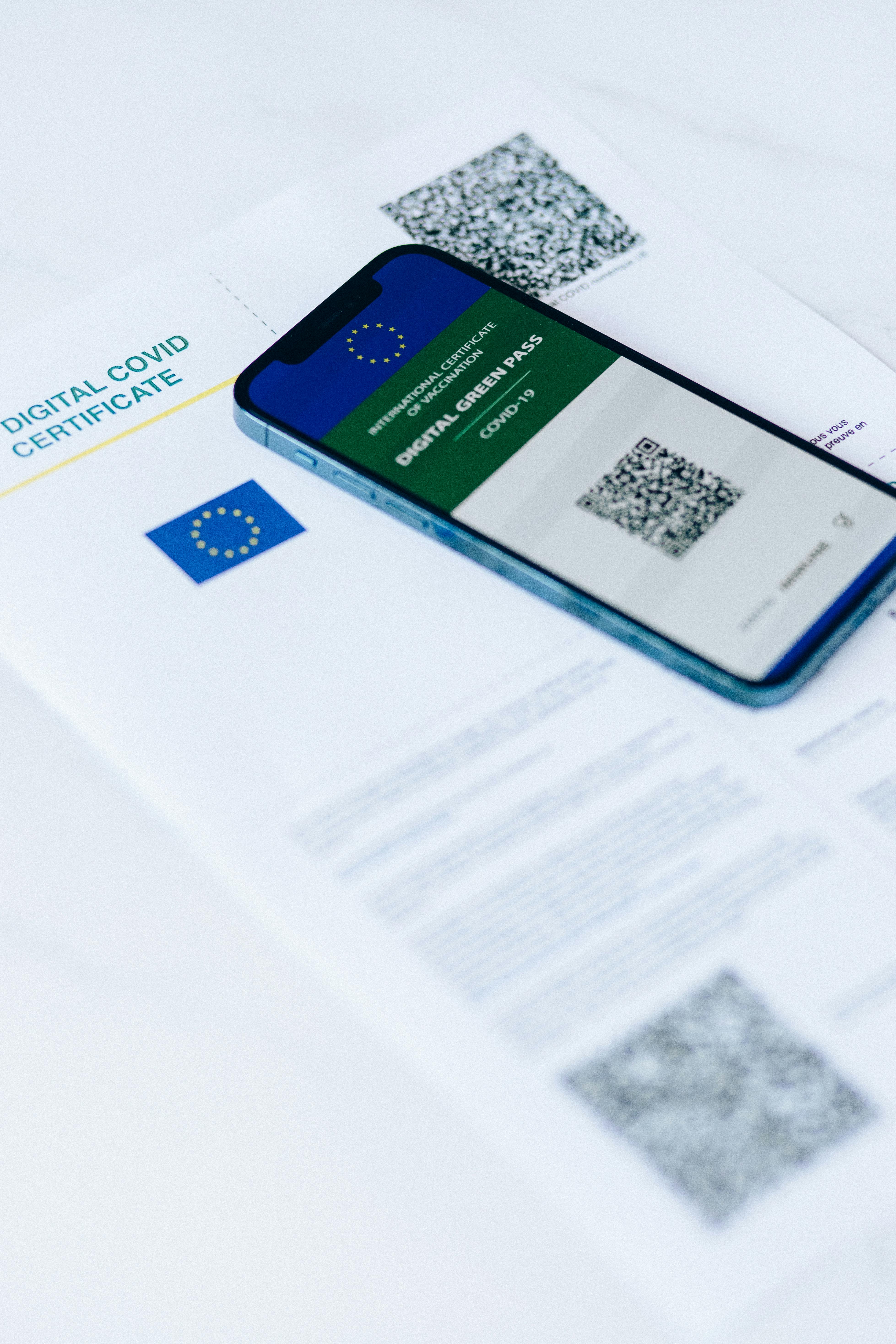In the world of Windows 11 app development, ensuring the security and integrity of your applications is paramount. One crucial aspect of this process is the Windows 11 App Signing Certificate. But what happens when you need to revoke this certificate? In this article, we’ll explore the ins and outs of the Windows 11 App Signing Certificate Revoke process, shedding light on what you absolutely need to know to safeguard your applications and maintain user trust. Have you ever wondered how a simple revocation can impact your app’s functionality and distribution?
Revoking a signing certificate might sound daunting, but understanding the implications can save you from potential pitfalls. Whether you’re a seasoned developer or just starting out, knowing how to handle certificate revocation is key. When a certificate is revoked, it can lead to app crashes, security vulnerabilities, and a negative user experience. So, what steps should you take to ensure a smooth transition? We’ll dive into the best practices and strategies to mitigate risks associated with certificate revocation, so your apps can continue to thrive in the Windows 11 ecosystem.
Moreover, the Windows 11 platform is continually evolving, and keeping up with the latest trends in app security is essential. Have you considered how a revoked certificate might affect your app’s visibility on the Microsoft Store? Or how it could influence user confidence in your brand? With expert insights and practical tips, this article will equip you with the knowledge you need to navigate the complexities of Windows 11 app signing certificate revocation effectively. Stay tuned as we unravel the mysteries behind this critical aspect of app development!
Understanding the Consequences of Windows 11 App Signing Certificate Revocation: What Developers Must Prepare For

Top 5 Reasons Your Windows 11 App Signing Certificate Might Get Revoked: Are You at Risk?

When you develop apps for Windows 11, having a valid app signing certificate is essential. This certificate not only ensures the authenticity of your application but also enhances its trustworthiness among users. However, you might not know that your Windows 11 App Signing Certificate can get revoked for several reasons. Understanding these risks is crucial to keeping your app secure and functional.
The Importance of App Signing Certificates
A Windows 11 app signing certificate acts like a digital passport for your software. It verifies that the app comes from a known source and hasn’t been tampered with since it was signed. Users are more likely to download and install apps that have these certificates, since they provide a layer of security. But, if the certificate gets revoked, it can create serious issues for both developers and users.
Top 5 Reasons Your Windows 11 App Signing Certificate Might Get Revoked: Are You at Risk?
Compromised Private Key
One of the biggest threats to your app signing certificate is a compromised private key. If your private key gets stolen or falls into the wrong hands, it could lead to unauthorized signing of apps. Once this happens, the certificate will likely get revoked to protect users from malicious software.Misuse of the Certificate
If a developer uses the certificate for purposes that are against the terms of service, it can lead to revocation. This includes signing applications that contain malware or distributing apps on unauthorized platforms. Always read and understand the terms associated with your certificate.Failure to Renew
App signing certificates have expiration dates. If you fail to renew your certificate before it expires, it will no longer be valid. Users trying to install your app may receive warnings or be unable to install it altogether. Regularly check the expiration date and set reminders for renewal.Changes in Ownership
If the ownership of the certificate changes, such as if a company is sold or merged, the certificate may be revoked. This is to prevent any security risks that could arise from new ownership. If you change your business structure, inform your certificate authority to avoid any issues.Revocation by Certificate Authority
Sometimes, the certificate authority (CA) may revoke your certificate for reasons beyond your control. This can happen if the CA believes that your certificate has been involved in fraudulent activity or if they have new security policies in place. Keeping in good standing with your CA is critical.
Practical Tips to Avoid Certificate Revocation
- Secure Your Private Key: Always store your private key in a secure location. Use strong passwords and consider hardware security modules (HSM) for added security.
- Stay Informed: Keep an eye on your certificate authority’s policies and any changes in the industry that might affect your certificates.
- Regularly Update Your Apps: Frequent updates not only improve security but also demonstrate that you’re actively maintaining your application.
- Monitor Usage: Keep track of where and how your app signing certificate is being used to ensure compliance with its terms.
What You Need to Know About Windows 11 App Signing Certificate Revocation
Revocation of your Windows 11 app signing certificate can lead to significant setbacks. It can hurt your app’s reputation, lead to loss of user trust, and disrupt your business operations. Therefore, understanding the risks and taking proactive steps to prevent revocation is vital for developers.
In today’s competitive digital landscape, protecting your app signing certificate is not just a good practice; it is a necessity. By being aware of potential pitfalls and taking the right precautions, you can ensure that your Windows 11 applications continue to thrive in the marketplace. Staying informed and prepared can save you from a lot of headaches down the road.
Step-by-Step Guide: How to Recover from a Revoked Windows 11 App Signing Certificate

If you’re a developer or someone involved in app development on Windows 11, you might run into a situation where your Windows 11 App Signing Certificate gets revoked. This can cause a big headache because it means your apps can’t be installed or updated. In this article, we will provide a step-by-step guide on how to recover from a revoked Windows 11 App Signing Certificate.
Understanding Windows 11 App Signing Certificates
Windows 11 App Signing Certificates serve a critical role in ensuring that applications are secure and trustworthy. When developers sign their apps with these certificates, it assures users that the app is from a verified source and hasn’t been tampered with. However, sometimes, these certificates can be revoked due to various reasons like security breaches, expiration, or other compliance issues.
Reasons for Revocation:
- Security Compromise: If the private key associated with the certificate is compromised, it can lead to revocation.
- Expiration: Certificates have a lifespan and need to be renewed regularly.
- Policy Violations: If a developer violates policies set by certificate authorities, revocation can occur.
What to Do After Your Certificate is Revoked
If you find yourself in this situation, don’t panic. There are steps you can take to recover your app signing capabilities.
Identify the Reason for Revocation: This is crucial. Check your email or the certificate authority’s website for any notifications regarding the revocation. Knowing why it was revoked is important for the next steps.
Create a New Certificate:
- Open PowerShell or Command Prompt.
- Use the command
makecert -r -pe -n "CN=Your Name" -b 01/01/2023 -e 01/01/2025 -sky exchange -ss My -sr CurrentUser. - Adjust the parameters as necessary, especially the dates.
Update Your Development Environment:
- Replace the revoked certificate with the new one in your development tools.
- Make sure to re-sign your applications with the new certificate.
Notify Users: If your app was already in circulation, communicate with your users about the changes. This is important to maintain trust and transparency.
Test Your Applications: After re-signing, ensure that the apps are functioning correctly and can be installed without issues.
Tips for Preventing Future Revocations
To help avoid the headache of a revoked certificate in the future, consider these tips:
- Regularly Monitor Expiration Dates: Set reminders for when your certificates are nearing expiration.
- Secure Your Private Key: Use strong passwords and two-factor authentication to protect your keys.
- Stay Informed of Policy Changes: Keep up to date with the policies of your certificate authority.
Final Thoughts
Recovering from a revoked Windows 11 App Signing Certificate can be a complicated process, but by following these steps, you can get back on track. Knowing the reasons behind revocations and taking preventive measures can save you lots of trouble. As a developer, staying proactive about your app security and signing practices is essential for a smooth development experience. Remember, the world of app development is always evolving, and keeping your certificates in check is just one part of the journey.
The Importance of Regularly Updating Your Windows 11 App Signing Certificate: 7 Key Benefits

In today’s digital age, many businesses and developers are aware of the importance of security for their applications. One often overlooked aspect is the Windows 11 app signing certificate, which is crucial for ensuring the integrity and authenticity of apps. Regularly updating your Windows 11 app signing certificate is not just a good practice, it’s essential. Here are seven key benefits you should consider.
1. Enhanced Security
Keeping your app signing certificate updated helps protect your application against potential attacks. An outdated certificate can be vulnerable, making it easier for cybercriminals to exploit weaknesses. By regularly updating, you strengthen your defense against these threats.
2. Improved Trustworthiness
When users see that an app is signed with a valid and current certificate, they more likely trust it. Users feel safer downloading and using applications that have updated signing certificates. Trust is a key factor in user retention and brand loyalty.
3. Compliance with Regulations
Many industries have strict compliance requirements regarding digital security. Regularly updating your Windows 11 app signing certificate ensures you remain compliant with regulations, helping you avoid potential legal issues. This can save you from hefty fines down the line.
4. Compatibility with New Features
Windows 11 frequently rolls out new features and security updates. If your app signing certificate is outdated, it could cause compatibility issues with these new updates. Keeping your certificate current means your application will function properly with the latest system enhancements.
5. Prevention of Certificate Revocation
Understanding the Windows 11 app signing certificate revoke process is crucial. If a certificate is not updated, it may become revoked due to security concerns or expiration. Revocation can lead to your application being flagged or removed from stores, harming your reputation.
6. Easier Troubleshooting
Outdated certificates can lead to various issues with app deployment and user access. If you frequently update your signing certificate, you may find troubleshooting problems becomes easier. You can address issues before they escalate into major concerns.
7. Better User Experience
Ultimately, all these factors contribute to a better overall user experience. With an up-to-date app signing certificate, users are less likely to encounter errors or security warnings. This creates a smoother interaction with your application, keeping users satisfied and engaged.
Windows 11 App Signing Certificate Revoke: What You Need to Know
If your certificate becomes revoked, it can have serious implications. Here’s what you should know:
- Causes of Revocation: Certificates can be revoked for several reasons, including expiration, security breaches, or if a private key is compromised.
- Impact on Your Application: Revocation can result in your app being flagged as untrusted, leading to loss of downloads and user trust.
- Reissuing Certificates: If your certificate is revoked, you’ll need to go through the process of getting a new one. This can be time-consuming and may delay your app updates.
- Best Practices: Always monitor your certificate’s status and set reminders for updates to avoid unnecessary revocations.
Maintaining an updated Windows 11 app signing certificate is vital in today’s fast-paced digital environment. The benefits are clear, from enhanced security to improved user trust. Keeping up with these updates not only protects your application but also ensures a smooth experience for your users. Taking proactive measures can make all the difference in the long run.
Expert Tips for Preventing Windows 11 App Signing Certificate Revocation: Ensure Your Apps Stay Secure

In the world of software development, ensuring the security of applications is just as important as their functionality. With the advent of Windows 11, developers face new challenges, especially when it comes to app signing certificates. If those certificates are revoked, it can cause significant disruptions. Here, we provide expert tips for preventing Windows 11 app signing certificate revocation, so your apps maintain their security and integrity.
Understand the Basics of App Signing Certificates
An app signing certificate is a digital certificate used to verify the authenticity and integrity of a software application. When you sign an app, you’re assuring users that it comes from a trusted source and hasn’t been tampered with. However, if your app signing certificate gets revoked, users may face issues running your application. This can lead to frustration and a loss of trust in your software.
Why Certificates Get Revoked
There are several reasons why a Windows 11 app signing certificate might be revoked. Some common causes include:
- Compromised Private Keys: If the private key associated with your certificate is exposed, the certificate can be revoked to prevent misuse.
- Expiration: Certificates have a validity period. Failing to renew them can lead to automatic revocation.
- Misuse: If the certificate is used for malicious purposes, it will be revoked by the certificate authority (CA).
- Inaccurate Information: Changes in your organization or incorrect information can lead to revocation.
Tips for Prevention
To ensure your app signing certificate remain valid, consider these expert tips:
Secure Your Private Keys: Always store your private keys in a secure location. Use hardware security modules (HSM) or key vault services to prevent unauthorized access.
Regularly Monitor Certificates: Keep track of your certificates’ expiration dates. Set reminders for renewal well in advance to avoid lapses.
Stay Updated on Security Practices: Regularly review and update your security protocols. Ensuring you’re aware of the latest threats will help you adjust your practices accordingly.
Use Reputable Certificate Authorities: Choose a trustworthy CA that has a proven track record. This can reduce the risk of revocation due to poor practices.
Educate Your Team: Make sure all team members understand the importance of app signing certificates. Regular training can help prevent accidental misuse or mishandling.
What to Do If Your Certificate is Revoked
If you discover that your Windows 11 app signing certificate has been revoked, take the following steps:
- Investigate the Cause: Determine why the certificate was revoked. This can help you prevent future issues.
- Reach Out to Your CA: Contact your certificate authority for clarification and assistance. They can guide you on the next steps.
- Reissue Your Certificate: If possible, reissue your certificate with updated information or enhanced security measures.
- Inform Your Users: Let your users know about the issue and provide solutions for reinstallation or updates.
Final Thoughts
Navigating the complexities of app signing certificates in Windows 11 can be tricky, but with a proactive approach, you can prevent revocation issues. By securing your private keys, staying vigilant about monitoring your certificates, and educating your team, you can ensure your applications remain trustworthy and secure. Keeping your app signing certificates in check is essential in today’s software landscape. Don’t let a revoked certificate derail your hard work. Stay informed, stay secure!
Conclusion
In summary, revoking a Windows 11 App Signing Certificate is a critical step to ensure the security and integrity of your applications. Throughout this article, we’ve explored the importance of app signing certificates in maintaining user trust and preventing unauthorized access. We discussed the various scenarios that might lead to certificate revocation, such as compromises or policy changes, and outlined the steps necessary to revoke a certificate properly. Additionally, we highlighted the implications of revocation on app availability and user experience. As the digital landscape evolves, staying proactive about app security is essential. Therefore, if you have concerns about your app’s security or are considering revocation, take action now to assess your certificate and ensure your applications remain secure and trustworthy. By prioritizing app security, you not only protect your users but also enhance your reputation in the marketplace.

